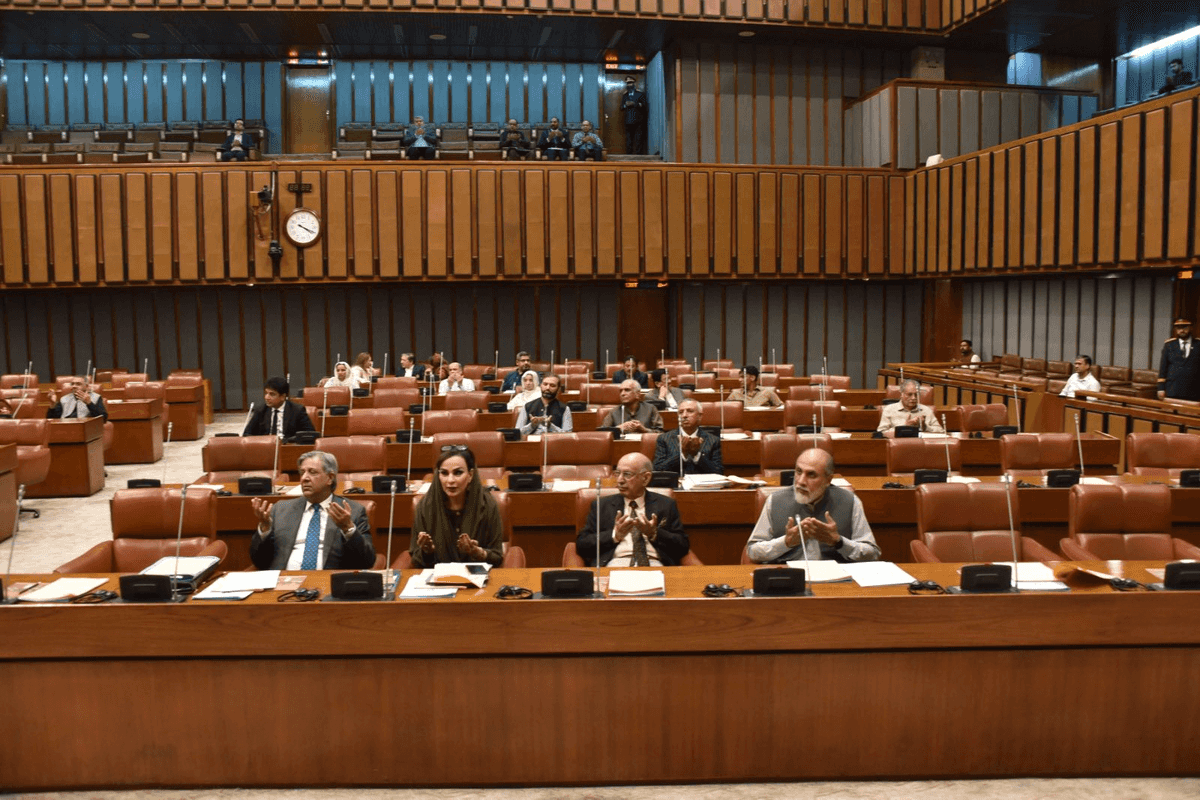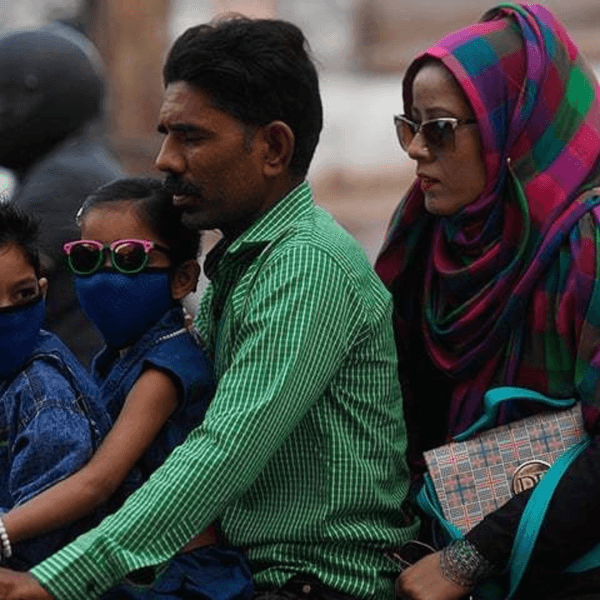Pakistan’s Senate passes bill banning child marriage in capital despite JUI-F objection
JUI-F Senator Kamran Murtaza called the bill “un-Islamic” and moved to refer it to the Council of Islamic Ideology

Javed Hussain
Correspondent
I have almost 20 years of experience in print, radio, and TV media. I started my career with "Daily Jang" after which I got the opportunity to work in FM 103, Radio Pakistan, News One, Ab Tak News, Dawn News TV, Dunya News, 92 News and regional channels Rohi TV, Apna Channel and Sach TV where I worked and gained experience in different areas of all three mediums. My journey from reporting to news anchor in these organisations was excellent. Now, I am working as a correspondent with Nukta in Islamabad, where I get the opportunity of in-depth journalism and storytelling while I am now covering parliamentary affairs, politics, and technology.

A glimpse of the Senate session on Monday.
@Pakistansenate/Facebook
Pakistan’s Senate on Monday passed a bill banning child marriage in the federal capital, days after it was approved by the National Assembly.
The legislation, moved by Senator Sherry Rehman of the Pakistan Peoples Party (PPP), sets the minimum marriage age at 18.
The bill faced resistance from Jamiat Ulema-e-Islam (JUI-F), with its senators arguing the bill should be reviewed by the Council of Islamic Ideology (CII). However, the motion to refer it to the CII was rejected, and the bill passed with majority support.
Senator Rehman highlighted the grave consequences of child marriage, noting that many girls become mothers at 16 and risk death during childbirth.
She emphasized that the law is already in effect in several provinces and aims to protect girls from abuse. “This bill should not be blocked on religious grounds. Even Quaid-e-Azam supported the Child Marriage Act of 1929,” she said.
She also credited fellow lawmakers Senator Sehar Kamran and Senator Shireen Mazari for previously championing similar legislation.
JUI-F Senator Kamran Murtaza called the bill "contrary to Islamic values" and proposed an amendment to send it to the CII, which was defeated. Senator Maulana Ata-ur-Rehman warned the bill could undermine parental authority and “turn society European.”
PPP's Farooq H. Naik questioned where Islam sets puberty at 18, arguing legal clarity is needed.
Balochistan Awami Party Senator Samina Mumtaz Zehri voiced strong support for the bill, saying that marriage should be discouraged even at eighteen, emphasizing that child marriage is a "sin".
Maulana Fazl protests in National Assembly
On the same day, JUI-F chief Maulana Fazlur Rehman raised his objection in the National Assembly, urging Acting Speaker Abdul Qadir Patel to halt the child marriage bill and refer it to the Council of Islamic Ideology (CII).
However, Patel, presiding through the panel of chair in the absence of the full-time speaker, said he could not intervene.
He explained, “When this bill was reviewed by the standing committee, I supported sending it to the CII. But since it was passed in a session chaired by the speaker, I cannot overturn a decision made under their authority.”
Key provisions of the bill include:
Punishments for offenders
- An adult man who marries a minor girl faces rigorous imprisonment between 2 to 3 years and a fine.
- Any sexual activity resulting from a marriage involving an individual under 18 -- regardless of consent -- will be treated as rape. The offender faces 5 to 7 years of imprisonment and a minimum fine of PKR 1 million.
- Child trafficking for marriage attracts 5–7 years of imprisonment, discouraging forced or deceptive child marriages.
- Parents or guardians who facilitate child marriages can be jailed for 2–3 years and fined, holding them accountable for negligence.
- Nikah registrars who illegally register child marriages risk 1 year in jail and a PKR 100,000 fine, ensuring strict compliance.
Court and legal process
- Only the district and sessions judge has the authority to handle these cases, ensuring specialized legal scrutiny.
- Trials must be completed within 90 days, prioritizing swift justice for victims.
- Courts can issue emergency injunctions to stop planned child marriages, with protections for whistleblowers.







Comments
See what people are discussing